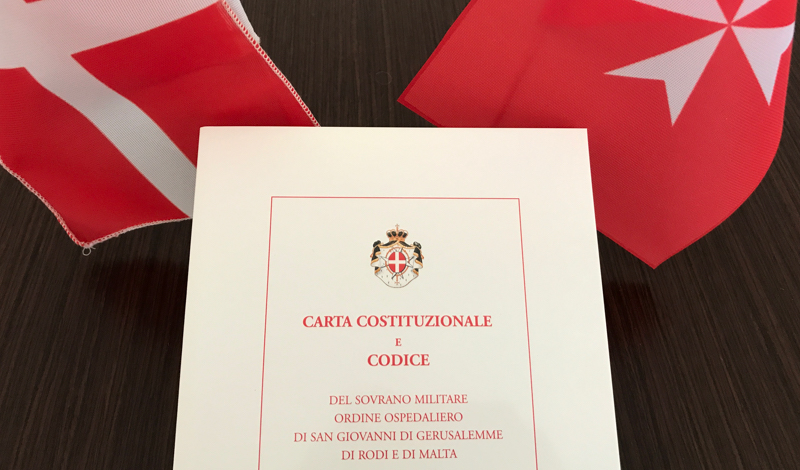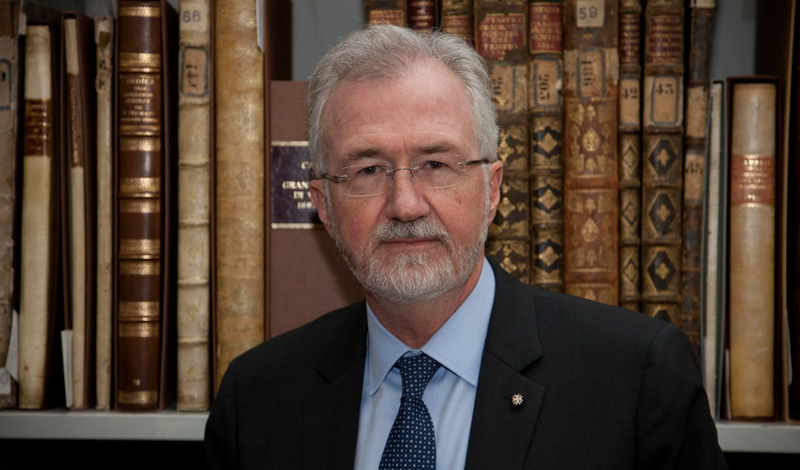Interview with Mauro Bertero Gutiérrez, Coordinator of the Reform Steering Committee
Work continues on the reform of the Sovereign Order of Malta’s Constitutional Charter and Code. After an interview given at the end of June, Ambassador Mauro Bertero Gutiérrez, coordinator of the Reform Steering Committee, has accepted to give an update on the work being carried out and on future steps.
Ambassador Bertero Gutiérrez, at what stage is the work on the reform?
After the ten working groups were set up last June, they concentrated on their specific themes. I am in regular contact with the ten group leaders and I can say that the reflections and evaluations are continuing with the proper intensity. Obviously, it is not an easy task. You have to consider that, because of the geographical distances, much of the work is being done through emails and tele-conferences.
Are there groups which have met physically?
Yes, we have hosted in Rome the meetings of groups 6 (Role and Position of Dames in the Order) and 10 (Financial Administration and Compliance). Between the end of November and early December there will be meetings of groups 1 (Professed), 2 (Obedience), 8 (Government Structure and Governance) and 9 (Local Organizations).
What are the tasks of the Lieutenant and the Reform Steering Committee?
Every day, the Lieutenant of the Grand Master receives numerous visits during which he listens and shares opinions and reflections. He has frequent meetings with the Order’s Professed members as well as with the Grand Priors, Procurators and Presidents of the national Associations. Fra’ Giacomo Dalla Torre has already met the leaders of groups 1 (Professed), 3 (Third Class) and 5 (Ministry of the Chaplains in the Order) and all the members of groups 6 and 10. In mid October he was in Lebanon where he met the Lebanese Association and the leader of group 7 which is involved with the young – the source of the Order’s future vocations. The Lieutenant of the Grand Master has weekly meetings with Mons. Angelo Becciu, the Pope’s Special Delegate in charge of accompanying the reform process.
In September, the Grand Chancellor went to New York, Ottawa and San Francisco, where he was able to discuss the reform process with our Associations in the United States and Canada.
Personally, I had the privilege of participating in the pilgrimage to the sanctuary of Our Lady of Lujan in Argentina and, on this occasion, I met the presidents of five South American Associations and was able to talk with them about the reform process. I did the same during the Government Council’s visit to the German Association.
In November, leaders from Australia, Philippines, Singapore, Thailand, South Korea and Hong Kong gathered for the seventh Asia Pacific Conference in Singapore. This was another opportunity to share considerations with the Order’s leadership in those two continents and receive their opinions.
It seems that numerous ideas and proposals are on the table
Alongside the work carried out by the groups, we have to take into account and prioritize the proposals arriving from individual members. Furthermore not all the proposals are of a constitutional nature, but they all contribute to the enrichment of the overall analysis.
I am also pleased to note a quite fluid communication among the different groups, given the fact that some themes naturally overlap.
Is early December still the deadline for the groups to present their proposals?
Yes, the time limit hasn’t changed. But we are not expecting these proposals to come under the form of constitutional articles. The groups know that they can express their conclusions in a conceptual manner. It will then be the task of the legal advisors – Father Gianfranco Ghirlanda, S.J., Prof. Giuseppe Dalla Torre and Prof. Gian Piero Milano – to assist in the evaluation of the proposals. The input of our Prelate, Mgr. Jean Laffitte, on the religious aspect of the constitutional reform will be essential. It is important to remember that one of the key moments of the entire process will take place between February 8th and 11th next year. Some 200 of the Order’s leaders and working group members will meet in Rome for an international seminar that will offer an opportunity to reflect and discuss the reform.
Is it possible to present some idea of the contents?
It is too early to speak about single provisions. It would mean anticipating the results of the working groups and what will be discussed in February in Rome. What I want to reiterate is that the reform as a whole is aimed at reinforcing the Order’s religious character and its Sovereignty. This constitutional revision is aiming at protecting the traditional peculiarity of our religious institution, preserving its charisma, safeguarding its identity and guaranteeing its commitment to serve others. I can assure you no provision contrary to this will be introduced.
What is your opinion about this work?
The key word in this process is “spirituality”. We can compare it to the spiritual formation of each one of our members: a task that is never truly completed. The same can be said of the implementation of the Constitutional Charter. The reform cannot be reduced to just a static text. It has to be continuously experienced at an individual level. ‘To reform’ means ‘to renew’. In this context, to renew means returning to our founders’ original charisma, ‘Tuitio Fidei et Obsequium Pauperum,’ and by updating the constitutional rules to better face the current times and humanitarian challenges.











